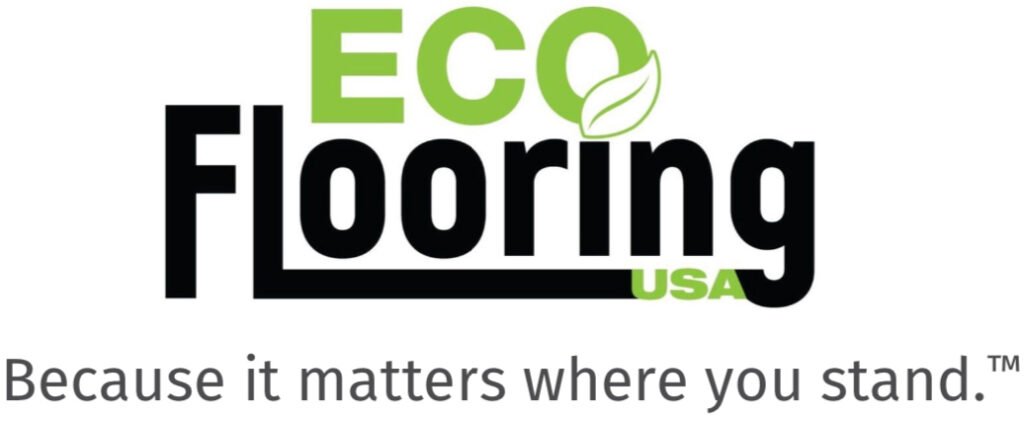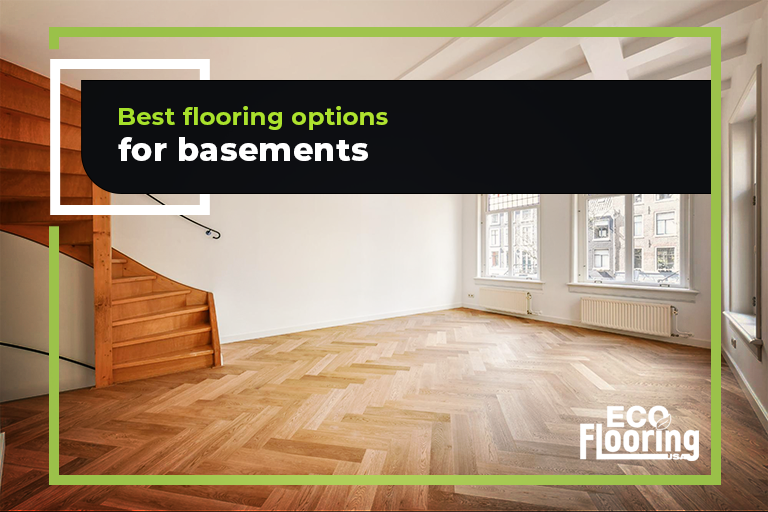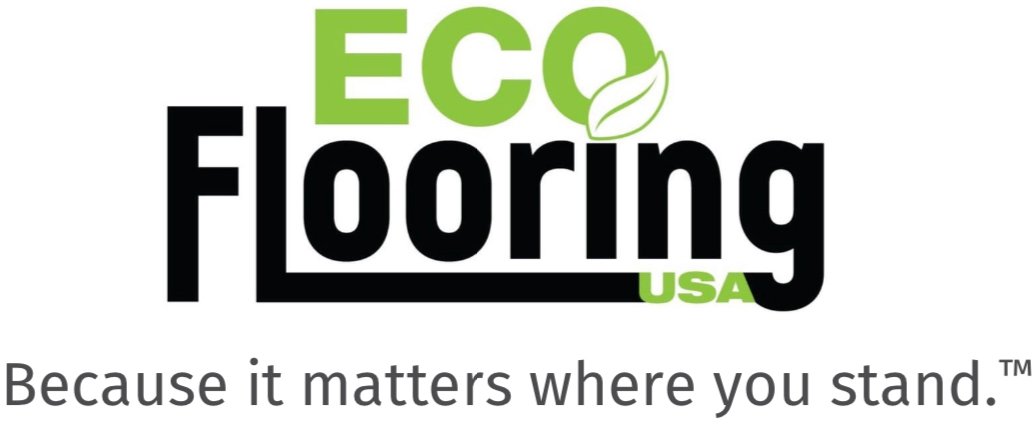Embarking on a basement remodel or renovation brings with it a set of challenges, particularly when it comes to selecting the best flooring for basements.
Basements, often built on concrete slabs at or below ground level, pose specific considerations, especially regarding potential moisture issues.
Given these challenges, the choice of flooring becomes a pivotal factor in the success of your basement remodel.
Here at Eco Flooring USA, we are going to delve into the best flooring options tailored to the specific demands of basements.
Keep reading!
What is the best flooring for a basement?
The best flooring for a basement combines durability, moisture resistance, and eco-friendliness. Stone Polymer Composite (SPC) and Wood Polymer Composite (WPC) are top choices. Both are water-resistant, highly durable, and environmentally friendly, making them ideal for basements prone to moisture.
Now, we’ll walk you through some of the best flooring options for basements, each offering distinct advantages suited to this specific environment:
1 – Luxury Vinyl Plank Flooring (WPC and SPC)
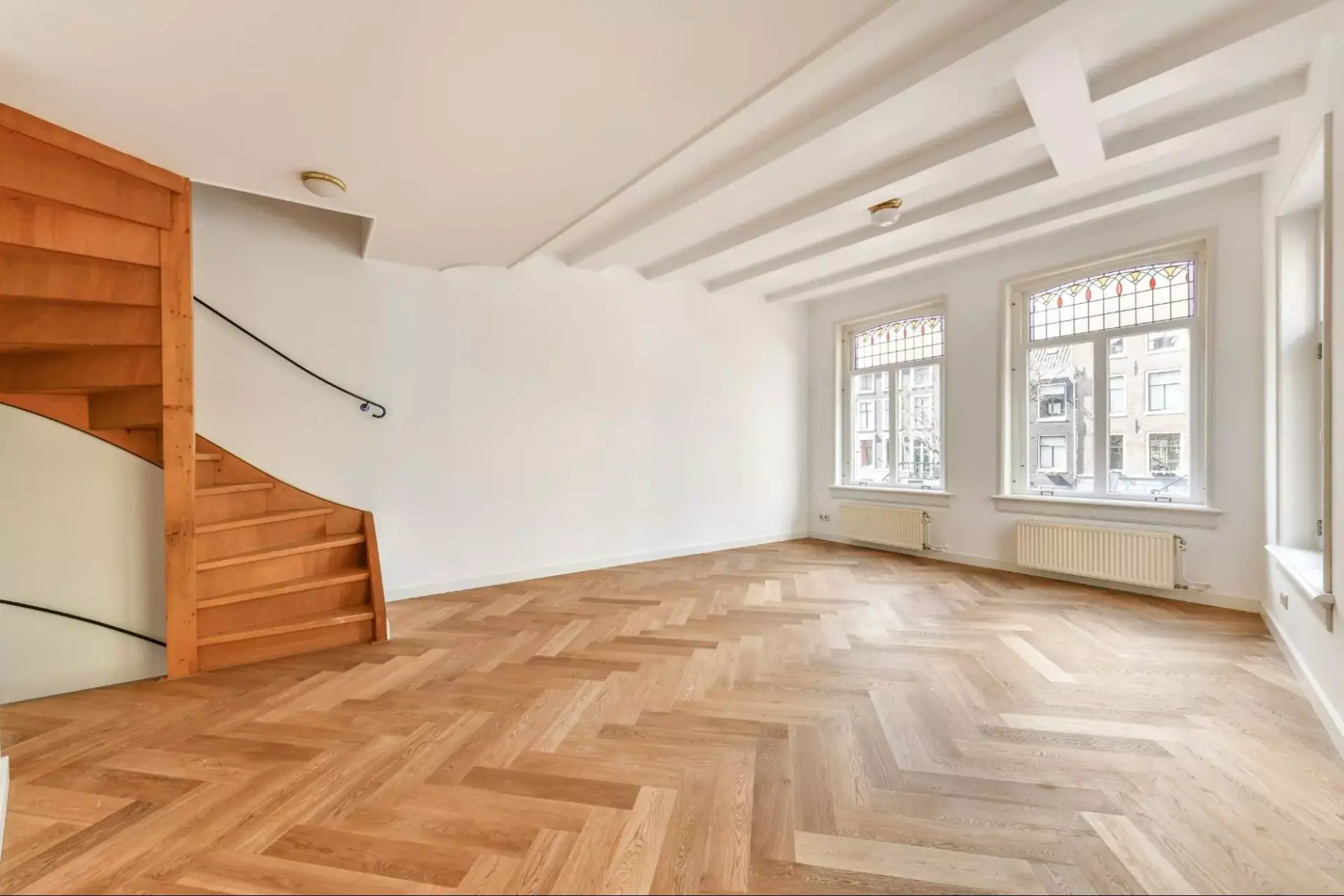
SPC and WPC Luxury Vinyl Plank are two high-quality flooring options made from a blend of limestone and stabilizers, creating an extremely durable core and without plastic element inside.
It mimics the appearance of natural wood or stone while offering superior performance and resilience for your basement.
Pros:
- Waterproof and moisture-resistant: Vinyl plank is impervious to water, ensuring durability in potentially damp basement conditions.
- Wide range of styles and patterns: With numerous vinyl flooring colors available, this provides flexibility in achieving the desired look for your basement.
- Cost-effective option: Vinyl plank offers an affordable alternative to natural materials.
Cons:
- May not have the same visual warmth as natural materials: While visually appealing, vinyl plank may lack the warmth associated with natural materials.
- Environmental Concerns: Some LVP products may contain PVC and other chemicals that are not eco-friendly. It’s important to choose high-quality, certified products to ensure a healthier indoor environment.
When installing vinyl plank flooring on basement, common mistakes such as improper subfloor preparation, failing to acclimate planks, and not leaving expansion gaps can lead to long-term issues. Hiring experienced professionals ensures these pitfalls are avoided, resulting in a flawless, durable installation that enhances your home’s beauty and value.
2 – Hardwood Flooring
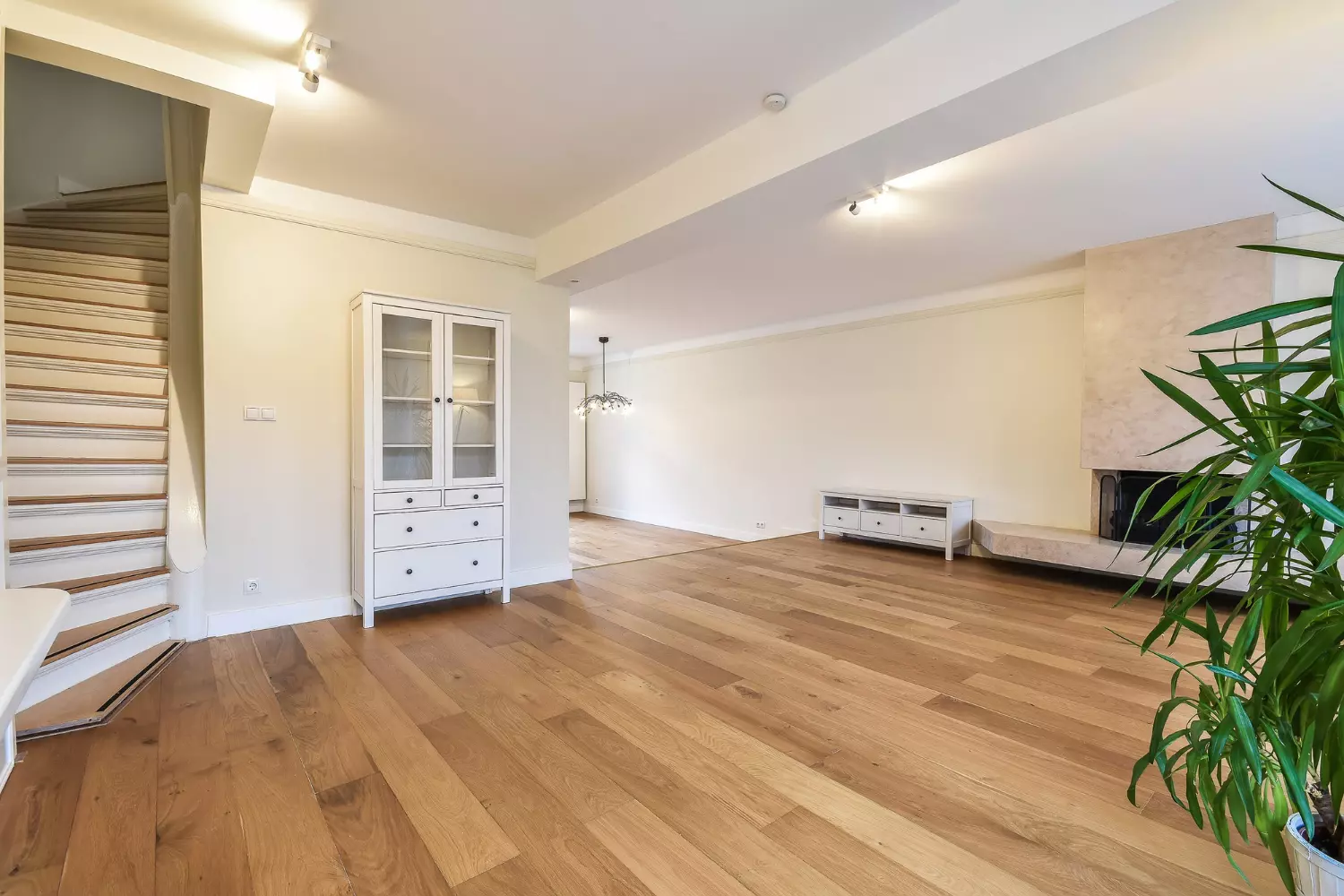
Hardwood flooring is a popular choice known for its timeless appeal and natural warmth.
Traditionally, solid hardwood may not be the first recommendation for basements due to its susceptibility to moisture and humidity.
However, engineered hardwood has emerged as a viable option for below-grade spaces. Engineered hardwood is constructed with layers that resist moisture-related issues, making it more stable in basement environments.
Pros:
- Timeless Aesthetic: With a variety of hardwood floor colors available, you can choose the perfect shade to complement your basement’s design and create a classic and timeless space.
- Comfort and Warmth: The natural warmth of hardwood provides a cozy and inviting atmosphere, making it a preferred choice for living areas.
- Engineered Hardwood Advancements: Engineered hardwood offers improved resistance to moisture and humidity, making it a more suitable option for basements compared to traditional solid hardwood.
Cons:
- Moisture Sensitivity: Traditional solid hardwood can be sensitive to moisture, posing a risk of warping or damage in humid basement conditions.
- Installation Complexity: Installing hardwood flooring, especially the traditional solid type, can be more labor-intensive and complex compared to other flooring options.
Read more:
3 – Laminate Flooring
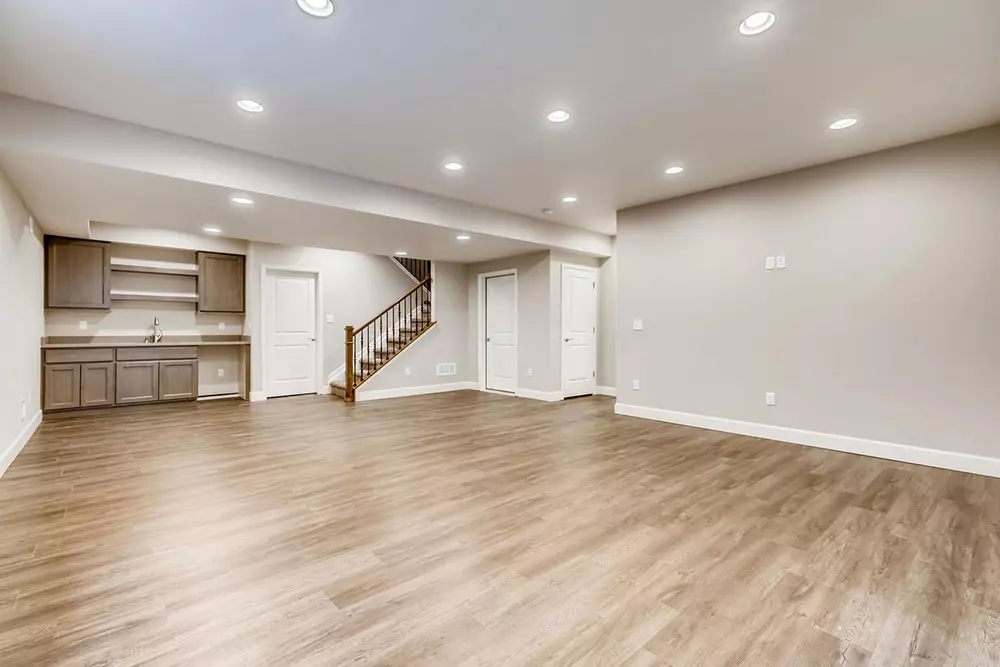
Laminate flooring is a cost-effective solution that mimics the look of hardwood, composed of layers, including a high-resolution image of wood.
Pros
- Budget-friendly option: Laminate is an economical choice for those seeking an attractive appearance on a budget.
- Resistant to moisture when properly installed: Avoid common mistakes when laying laminate flooring, such as neglecting moisture control and inadequate subfloor preparation, to ensure a durable and long-lasting floor.
- Various styles and textures available: Laminate comes in a diverse range of styles and textures, providing flexibility in design.
Cons
- Susceptible to water damage if not installed correctly: Incorrect installation may lead to water damage, emphasizing the importance of proper installation practices.
- Limited refinishing options compared to hardwood: Unlike hardwood, laminate has limited refinishing options, with damaged areas often requiring replacement.
4 – Ceramic/Porcelain Tile
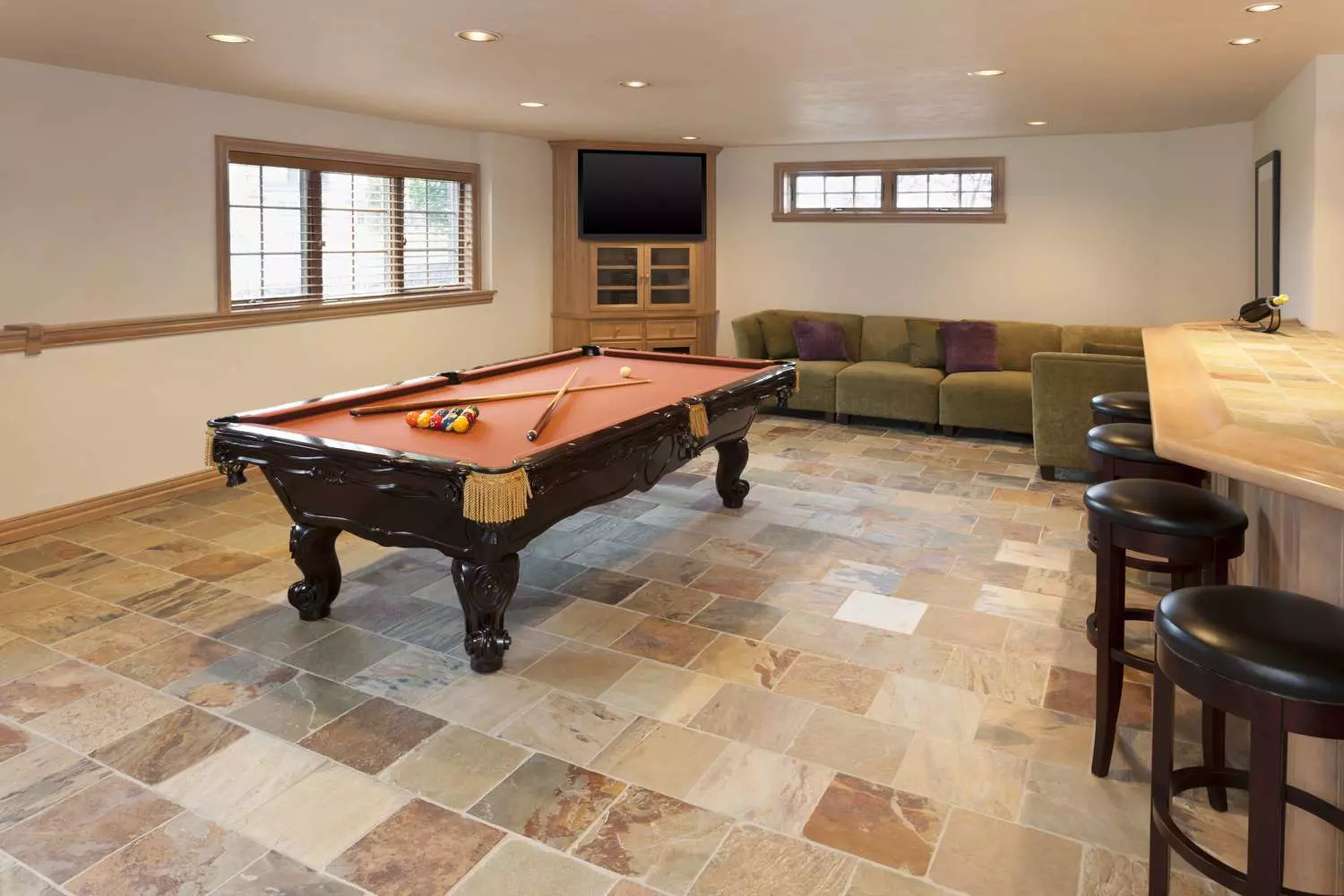
Ceramic and porcelain tiles are top contenders for basement flooring, offering durability and resistance to moisture.
These tiles are excellent at withstanding the challenges posed by damp conditions, making them a practical choice.
In addition to their resilience, ceramic and porcelain tiles come in a diverse range of styles, colors, and patterns, allowing homeowners to achieve a customized look for their basement space.
Pros:
- Moisture Resistance: Ceramic and porcelain tiles are highly resistant to moisture, making them an excellent choice for damp basement environments.
- Diverse Aesthetics: Available in a wide range of styles, colors, and patterns, these tiles provide homeowners with the flexibility to achieve a customized and visually appealing look.
- Easy Maintenance: Tiles are easy to clean and maintain, making them a practical option for busy households.
Cons:
- Cooler Surface: Tiles can feel cooler underfoot compared to hardwood, potentially leading to a less cozy atmosphere.
- Installation Challenges: The installation of ceramic or porcelain tiles may require careful preparation of the subfloor to ensure a level surface, adding to the complexity of the installation process.
A really not good option: carpet floor
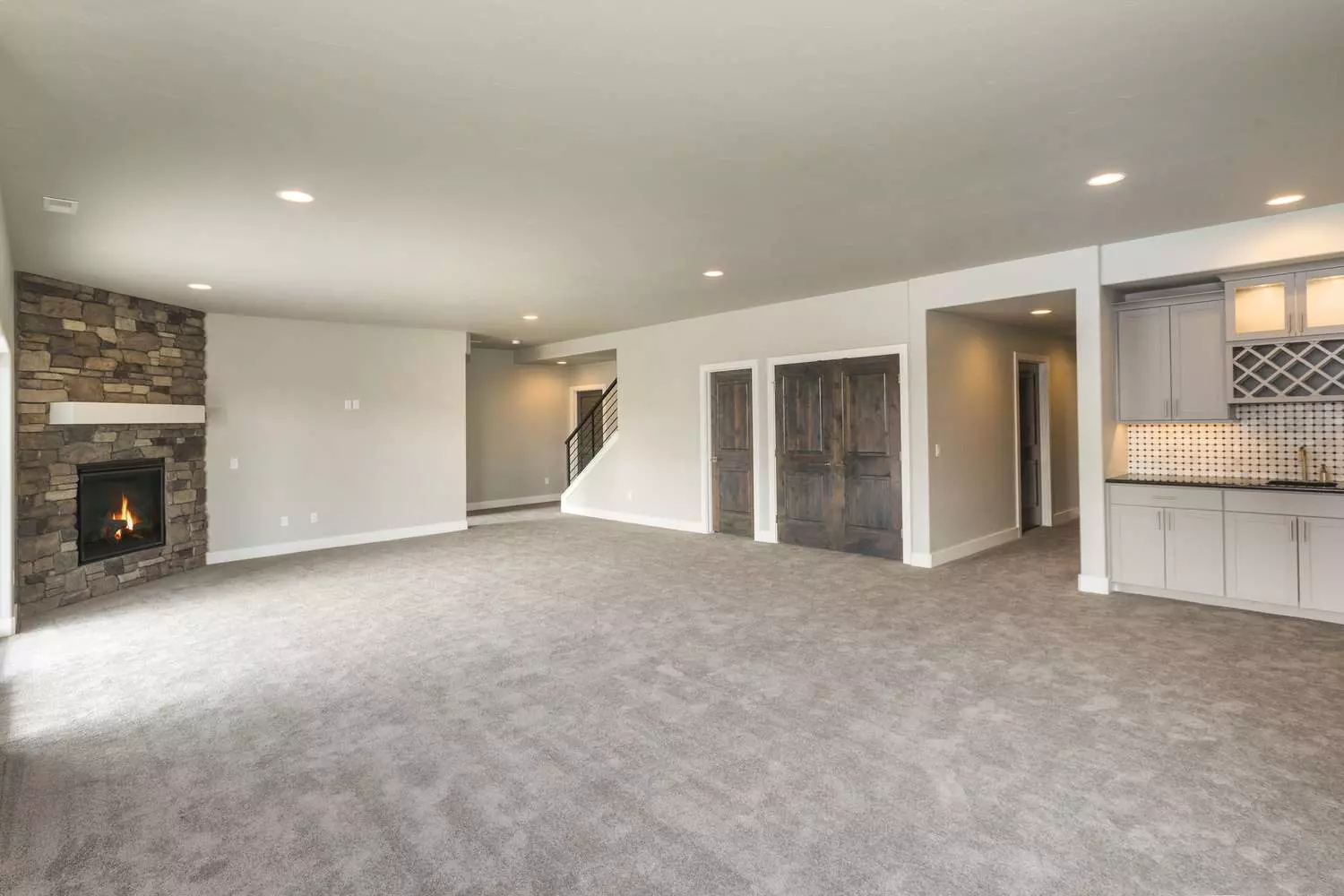
While carpet may seem like a cozy choice, it’s not the most suitable flooring option for basements due to several drawbacks:
- Susceptibility to Moisture Damage: Basements are prone to higher humidity levels, and carpeting, especially in the form of carpet tiles, can be susceptible to moisture damage in such conditions.
- Limited Design Choices: Compared to traditional rolled carpets, carpet tiles offer fewer design choices. If you’re looking to enhance the aesthetics of your basement, other flooring options may provide more diverse and appealing styles.
Moreover, it’s essential to note that carpet is not a sustainable material, contributing to environmental concerns.
In light of these considerations, it’s advisable to explore alternative flooring solutions that not only address the challenges of basements but also align with sustainable and eco-friendly practices.
Read More:
- Carpet vs Luxury Vinyl Plank: get to know the best choice!
- Carpet vs Hardwood Flooring: compare these two options!
Your #1 choice for sustainable flooring solutions in Metro Atlanta-GA
For those looking to make an eco-friendly and durable choice, Eco Flooring USA stands out as a premier provider of sustainable flooring solutions. Our Vinyl Plank and Laminate collections not only offer a wide array of color options but also boast remarkable durability and resistance to damage.
With Eco Flooring USA’s commitment to quality and sustainability, you can trust that your basement flooring will not only meet but exceed your expectations, providing a beautiful and eco-conscious foundation for years to come.
Contact us today and discover how we can transform your spaces with our high-quality flooring solutions.
